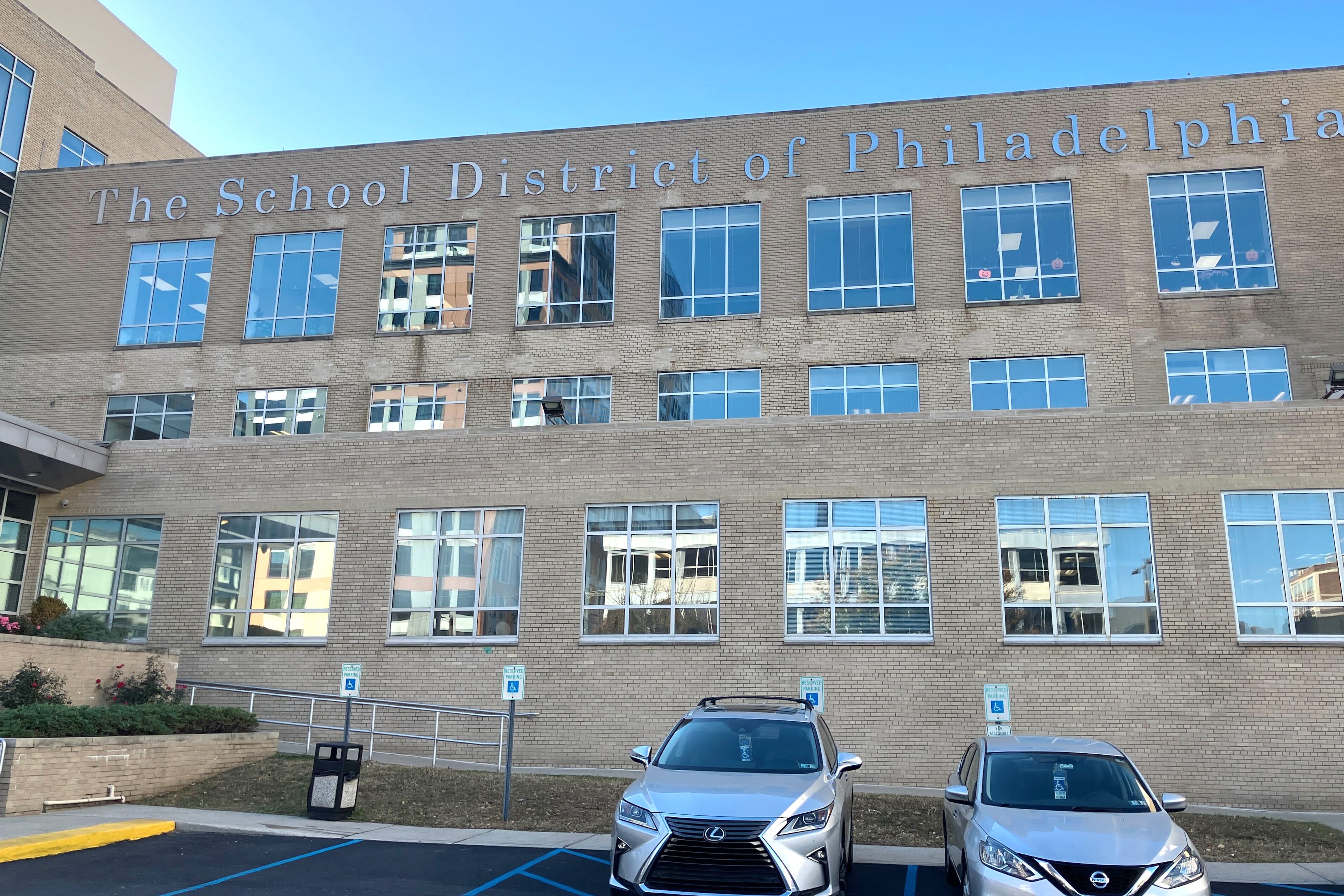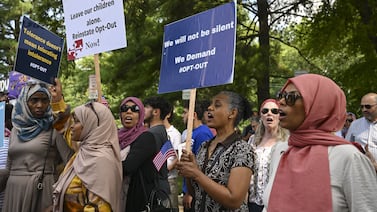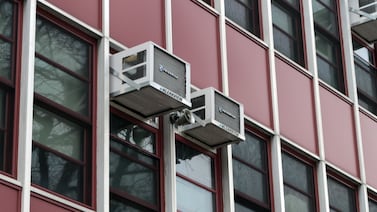Sign up for Chalkbeat Philadelphia’s free newsletter to keep up with news on the city’s public school system.
A federal investigation has determined that the Philadelphia school district has not adequately addressed incidents of antisemitism and other examples of “harassment based on shared ancestry” that occurred in and around schools recently.
In a resolution agreement with the U.S. Department of Education’s Office for Civil Rights stemming from a complaint filed by some parents and Jewish organizations in May, the district agreed to publicly declare its intolerance of harassment and discrimination on its website, post a statement in every school, and review and revise its anti-harassment policies by Jan. 9.
The district must also send the revised policies to all school administrators, who must “distribute, convene, and discuss the revised policies and procedures with site-based staff.” It must also train staff annually, and provide age-appropriate training and information on racial and ethnic discrimination to all students in grades 6-12.
The agreement underlines growing tension and hostility inside and outside of Philadelphia classrooms surrounding the Israel-Hamas war that began in October of last year. Pro-Israel and pro-Palestinian educators and families have repeatedly demanded the district and board of education do more to protect students and teachers experiencing harassment for any protected views.
In the agreement, the federal government noted that Philadelphia school leaders can and should take more direct action than they have so far. Officials with the Office for Civil Rights said the district “refused or failed to produce” some vital information regarding its handling of the complaints.
“In all incidents, the District did not provide any documentation showing that anyone at the school or at the District assessed whether the incident created or contributed to a hostile environment on the basis of shared ancestry,” the resolution agreement letter reads.
The district also appears not to adequately collect records of such incidents, as required under federal law.
In response, officials issued a statement saying the district “strives to create welcoming and inclusive environments that allow our students to feel safe and heard. The District takes all complaints of bullying, harassment, and discrimination seriously, including allegations of Antisemitism and Islamophobia.”
The statement continues, “OCR has recognized areas where the District has shown its commitment to this important work and also identified areas needing additional attention and improvement. The voluntary resolution agreement outlines ways in which the District will continue to improve upon its processes.”
Though officials redacted the names of specific individuals and schools in the agreement, details appear to refer to several far-reaching complaints made against various educators, district officials, and students across the district and on social media. These include actions taken by three pro-Palestinian teachers at Baldi Middle School, swatstikas drawn on Masterman school property, and a school project about Palestinan solidarity and resistance art in Northeast High School teacher Keziah Ridgeway’s class.
The incidents cited range from allegations of students shouting “heil Hitler” at Jewish students and teachers in various schools, to a student calling a Jewish student antisemitic slurs and putting that student in a headlock and throwing them into a trash can.
There are also complaints about a Jewish student allegedly being falsely accused of “trashing” the school prayer room and “verbally assaulting Muslim girls who were inside,” and a concern from one teacher about a school district official wearing a Palestinian flag pin, among other instances.
In announcing the agreement, OCR issued a statement saying that the district did not demonstrate that it fulfilled its obligation under Title VI — the federal statute that prohibits discrimination based on race, color, or national origin — to “evaluate whether a hostile environment existed” or that it “took steps reasonably designed to eliminate any such hostile environment and prevent its recurrence.”
Notably, the agreement does not address a separate OCR complaint brought by three teachers at Baldi Middle School. That complaint alleges that leaders at their school have discriminated against Palestinian, Arab, and Muslim students, infringed on the free speech rights of those supporting Palestinian people, and improperly disciplined educators who have publicly offered support for Palestinian rights.
Pro-Palestinan speakers, including many Jewish students and parents, have congregated at every school board meeting since the summer to demand that the board and district take complaints about anti-Palestinian incidents as seriously as they take complaints about antisemitism.
Andrew Goretsky, regional director of the Anti-Defamation League’s Philadelphia branch — which brought the original complaint — said in a statement Thursday the agreement is “a vital acknowledgment of the challenges faced by students and their families.”
“We are hopeful that the district’s commitment to implementing much-needed measures will create a more inclusive environment where Jewish students, and indeed all students, can feel safe and supported in Philadelphia schools,” Goretsky said. “We look forward to seeing these commitments realized.”
This story has been updated to include a comment from the Anti-Defamation League.
Dale Mezzacappa is a senior writer for Chalkbeat Philadelphia, where she covers K-12 schools and early childhood education in Philadelphia. Contact Dale at dmezzacappa@chalkbeat.org.
Carly Sitrin is the bureau chief for Chalkbeat Philadelphia. Contact Carly at csitrin@chalkbeat.org.





